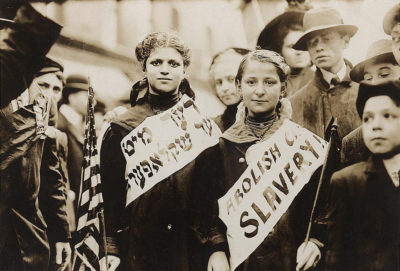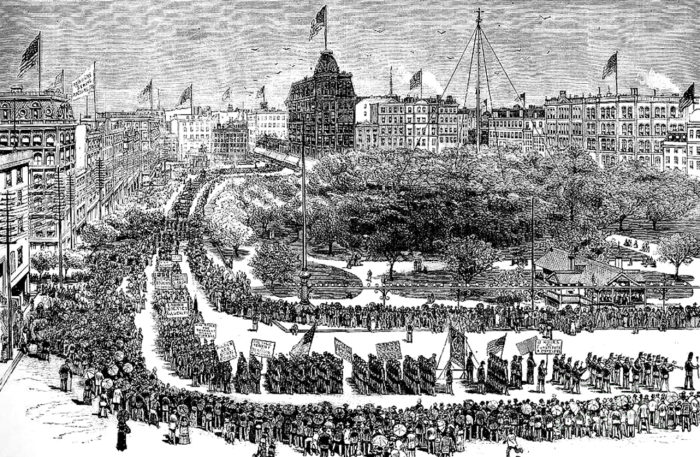Labor Day
Today marks the Labor Day holiday here in the US. I wish it had fallen yesterday, which was 9/1/19, almost as cool a date as was 1/9/19. But it’s set for the first Monday in September, which this year happens on September 2, not September 1.
Be that as it may, few people seem to understand what Labor Day is, except a day off work and out of school. Used to be, in many parts of the country, Labor Day was actually the signal that school was starting, that autumn was setting in, that summer was over.
Lots of folk take advantage of the “last summer day” by planning weekend trips to nearby vacation spots or by hosting a backyard barbecue or a beach bash. When I was teaching, Labor Day was a work day during which I set up my classroom and planned my lessons. More and more schools have rushed the start of school to August, so teachers may be joining a good portion of the work force to take it easy and to catch their breath before the days grow shorter than the nights and a nip in the air replaces the heat of the summer.
None of that explains what Labor Day actually is.
In fact, the holiday is rooted in the labor movement which played a significant part in the development of America as it is today. Mind you, I’m not a fan of strikes. I hate sport strikes more than any other, but largely, the principles of creating a work environment that is good for workers, is widely understood to be good for business, so generally is not contested by owners and managers.

Protest against child labor, one sign in Yiddish, the other in English
Owners often got rich on the backs of those workers or because of business policies that came from monopolies and unfair practices.
Society slowly rose up against this disparity between owners and workers. A few novels came out, exposing abuses of power created by manipulation. One such book was Upton Sinclair’s The Jungle, a story revealing the awful conditions in the meat industry. Not for the animals. For the workers! As it happened, it also exposed the unsanitary practices that endangered consumers:
Jurgis Rudkus, a Lithuanian immigrant, finds work to support his struggling family in Brown’s Slaughterhouse in Chicago. The conditions are poor and the morale is even poorer. The workers of the slaughterhouse face a depravity that worsens with each passing day.
Though Upton Sinclair’s motivation was to showcase the poor working conditions of industrial workers, The Jungle caught the public’s eye for its ways of exposing the health violations and unsanitary practices commonly found in the meat packing industry. The book led directly to the passage of The Meat Inspection Act of 1906.
People can argue about the labor movement—it was heavily influenced by Marx and Communism. Socialists were at the forefront of many of the early labor actions, such as the parade in New York in 1882 (pictured above), and many resulted in violence. But there’s no doubt, the development of labor unions and their consolidation at the end of the 19th century, changed the face of America.
In many ways we can thank labor unions for the growth of the middle class. For those interested i a bit more detain (but not too much), I recommend “Have we forgotten the true meaning of Labor Day,” a 2017 article by Jay L. Zagorsky, a senior lecturer at Boston University. Nothing too heavy. Just interesting to be reminded of or to learn how Labor Day came into being.
Now, for a connection to speculative writing. I’ve discussed work in speculative fiction before, but are there work stoppages in any speculative stories you can think of? Any economic class wars? Any dissatisfaction with the working status quo? I’m hard pressed to think of any. Mostly Big Government is the entity against which the protagonist is fighting. Or one government against another. Or simply one person trying to take over the government.
I find it fascinating that the struggle in so many of our books has been for the control of government more than for the control of business or labor or the legal system or the courts. Maybe the fight for government seems more important and therefore a bigger stake, but I suspect it is actually a reflection of our society and how we view government today.
Your thoughts?
And enjoy your day off!








































Dear Rebecca,
There is a fair amount of science fiction with strikes. The most well known novel is Jack London’s Iron Heel, which is arguably the first dystopian novel and along with Bernard Wolfe’s Limbo and Ray Bradbury’s Fahrenheit 451, the definitive American dystopian work.
Best,
John
P.S. China Mieville’s work, particularly his fantasy, has work stoppages as well. Mieville writes from an explicitly Marxist perspective. London did too, but his work is more complicated due to the heavy amount of Nietzschean thought that characterizes his work.
Thanks, John. Good examples. I guess I was thinking more about contemporary books. The ones you name are from a different time, when labor issues were more front and center. What I’m wondering is this: how much does our current cultural situation affect a writer, whether consciously or unconsciously? So, I’m postulating that government is now a target more than business. Of course in the early dystopians—Brave New World and 1984—the government was the owner and the employer. And they didn’t allow protests.
Becky
I’d be curious to see why you dislike strikes/sport strikes, if you care to elaborate.
I think one reason people don’t focus as much on fighting business in spec fic is that there are many varieties of business. A lot of people think of business as ‘evil’, but a lot of other people don’t because for the average person, owning a business is often just another career choice. Maybe their parents owned a little family restaurant, or maybe they can’t find work in their initial field due to industry changes and start earning a living with their own business instead. Or, heck, some people start their own businesses to fulfill their dreams or bring forth some sort of innovation that wouldn’t have happened otherwise. Businesses, even large businesses, aren’t innately evil or something we have to fight or take control of, it’s more like corruption seeps into every area of life and has to be combated, no matter what economic system we have.
Actually, though, a lot of stories do feature CEOs and corruption in companies as part of the plot. In fact, I started reading a comic on Line Webtoon called The Red King recently, and the main char is from a rich family that owns a company with some dark secrets. And then I think in Sci Fi it’s still kind of common to see companies of some sort being behind some form of genetic engineering project and causing problems for the characters. I think there is a decent amount of class warfare in fiction though. Like, you have peasants that want to rebel against the royals. In fact, in Purple Hyacinth (pretty good comic so far) the bad guys are furthering their plans partly by stirring up conflicts between classes:
https://www.webtoons.com/en/drama/purple-hyacinth/list?title_no=1621&page=2
So, I dunno, in many ways when company corruption is featured in a story, it tends to be less about worker conditions and more about destructive products being put out or experiments being performed on sentient creatures. That might be partly due to the fact that workplace conditions are less of a life and death situation in developed countries than they used to be. And when writing speculative fiction, it’s often important to depict life or death struggles because it’s what the genre calls for.
I seem to remember that in the later Hunger Games books, strikes– refusing to produce the goods their oppressors needed– played a major part in the districts’ rebellion against the Capitol. And class struggles are also a major theme in those books, pitting the “haves” of the Capitol and the wealthy districts with the “have nots” of the rest of Panem.
Most of the Progressive Era books I’ve read were about the abysmal conditions of workers to help inspire labor reform. Grapes of Wrath also pushes socialism as a cure, but America had a significant socialist movement before they were demonized and scapegoated in the 50’s.
I read some Frank Norris for a class. Super depressing, but it was kinda supposed to be, like Dickens. In fact, Dickens was part of the same movement, from an earlier and different angle. With happy endings, which the others didn’t feel obliged to do.
I think corrupt corporations remain popular villains. See Lex Corp, Weyland Corporation, and the one from that new show called “the Boys” (strongly don’t recommend watching that last one, it’s not for everyones taste).